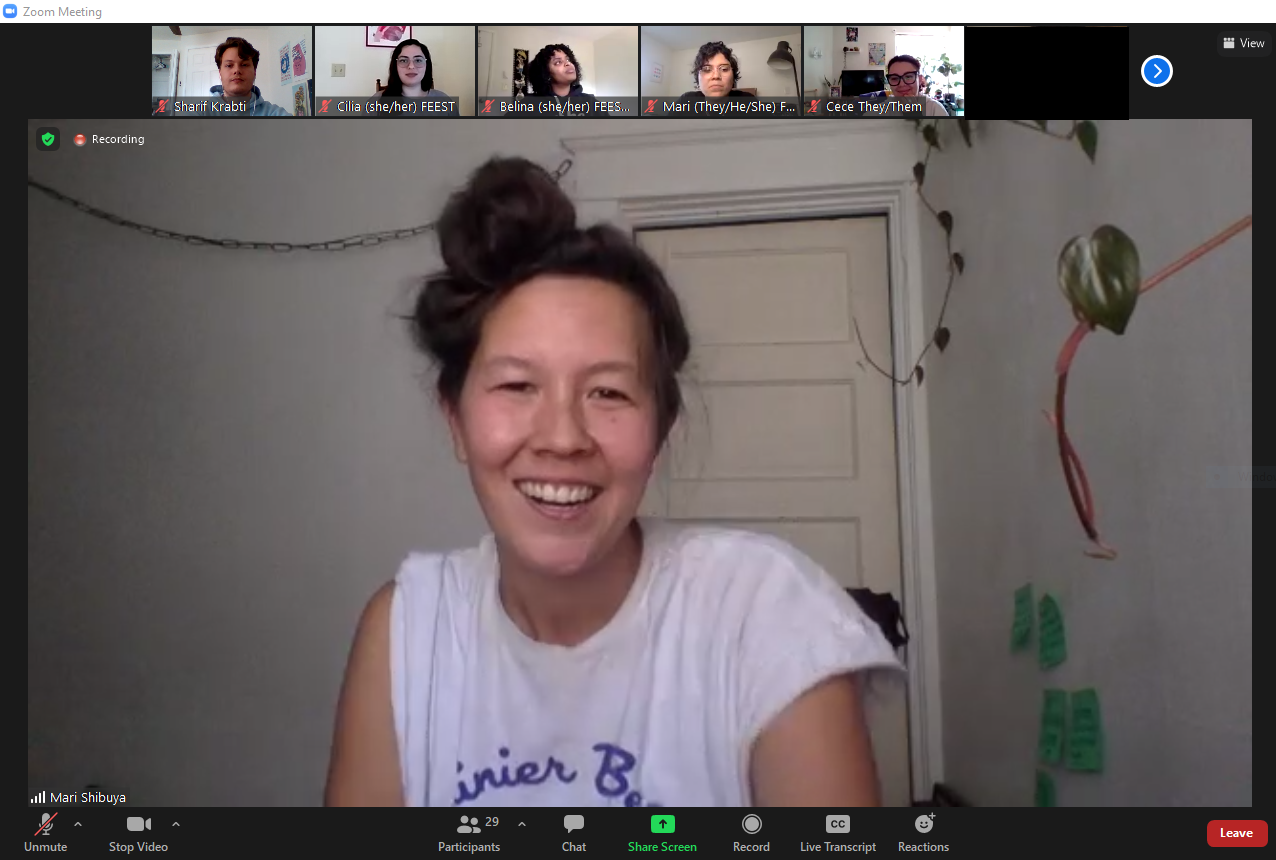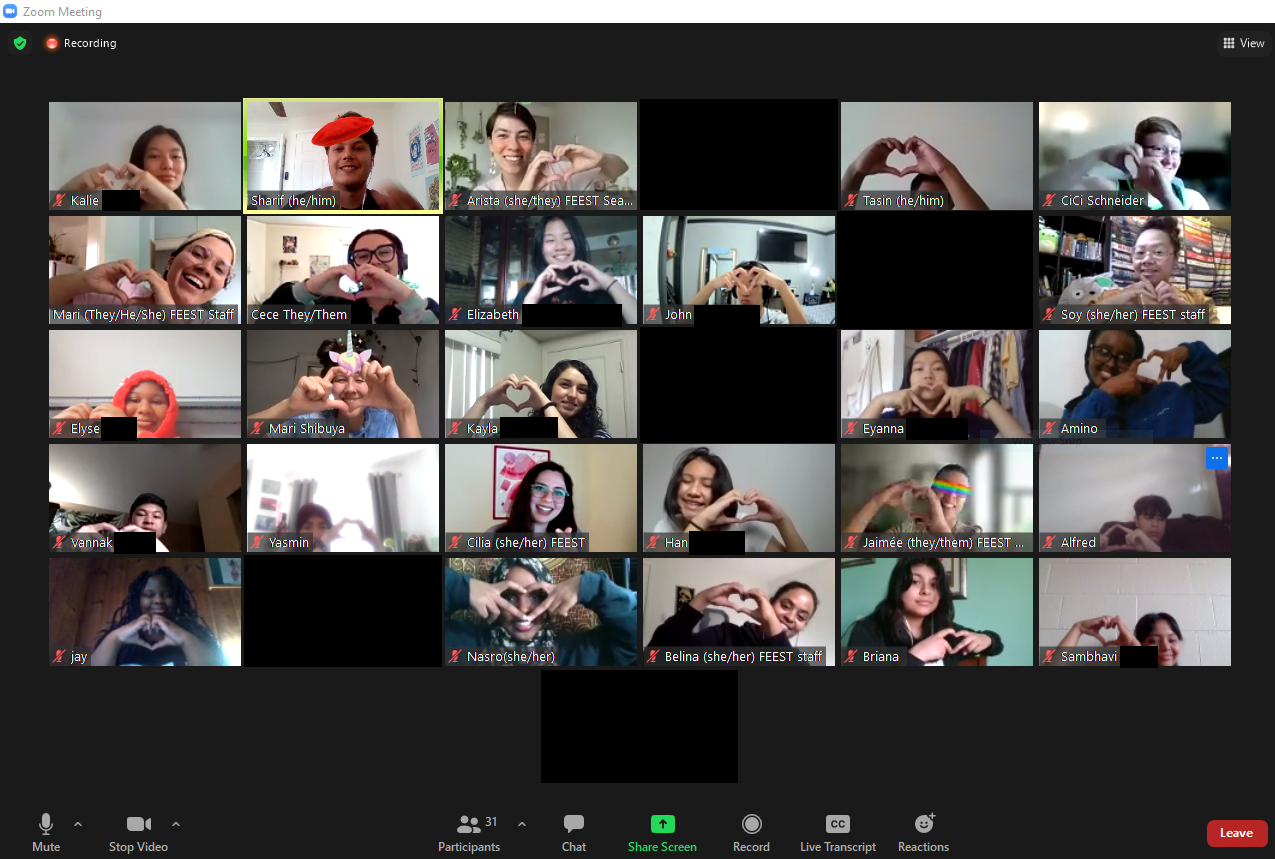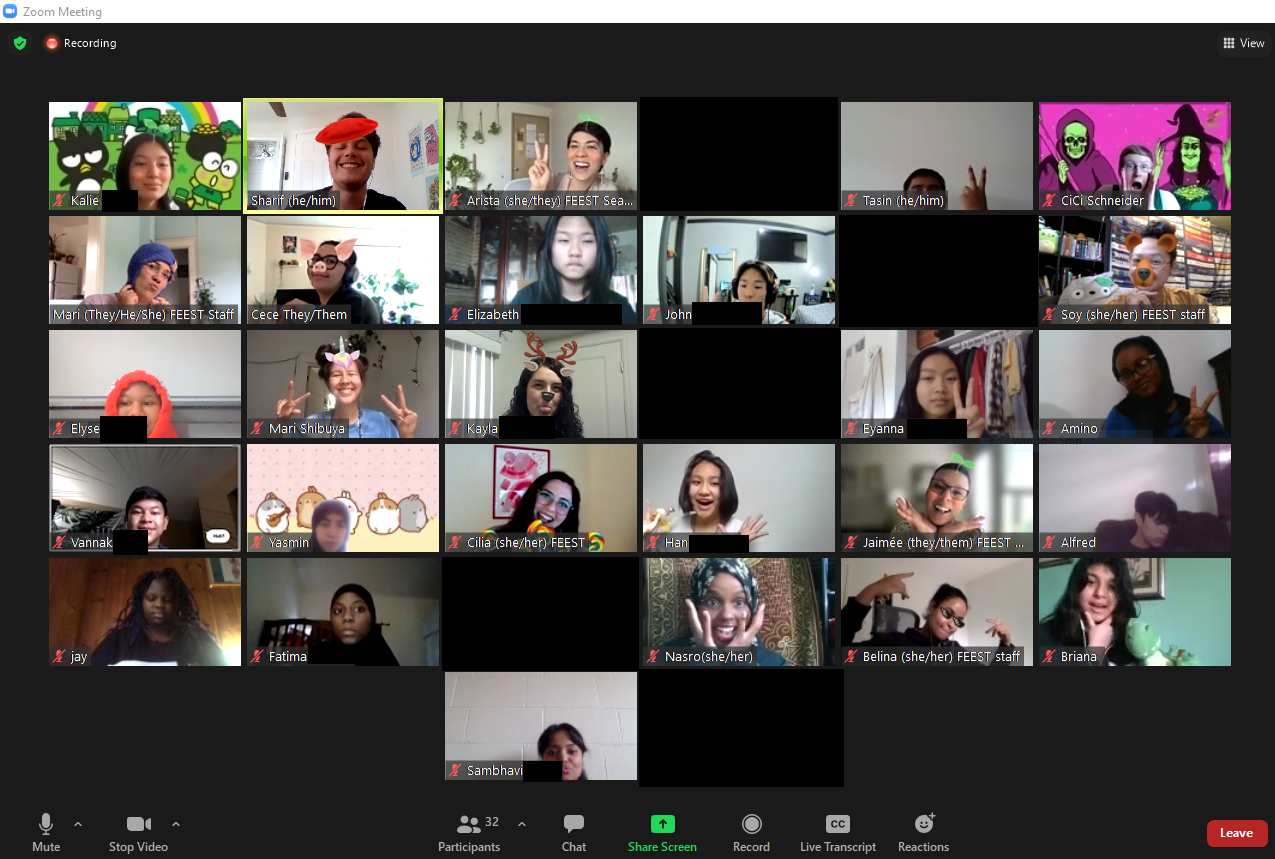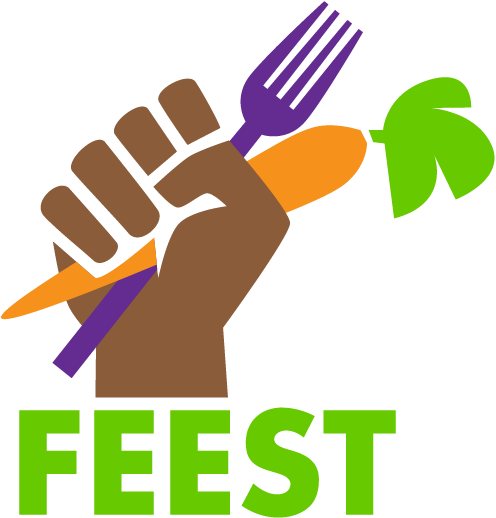The last two weeks of August saw us host our annual Summer Camp for FEEST Youth Leaders, where we met virtually to build community, sharpen our analysis of power and oppression, and learn the fundamentals of community organizing. This year’s cohort includes students from Chief Sealth, Evergreen, Rainier Beach, Tyee, and for the first time, Franklin High School! Here are some highlights from our time together.
Our days began with lunch from various local great eats, including Musang, Bananas Grill, Cafetal Quilombo Cafe, That Brown Girl Cooks, and Gold Coast Gal Kitchen. The meals were delicious and introduced some of us to food that we had never tried before! A big thanks to all the restaurants and to our amazing volunteers who made the deliveries!
Another huge shoutout goes to local artist and creative facilitator-extraordinaire Mari Shibuya, who joined us for 5 of our sessions and led workshops in dissecting big ideas and visioning the futures we want to live in. We played games, held reflections, and created art that helped us better understand the world and ourselves. Thank you Mari, for guiding us through this amazing work!

After lunch, our sessions started with everyone doing one-on-one (1:1) conversations to get to know each other and get used to talking to people we don’t already know. 1:1s are a crucial part of community organizing, and we use them to build relationships with people who we want to work with and to ask them to participate in our campaigns. We started with 10-minute 1:1s and gradually built our way up to 25 minutes. By the last day, our conversations were practically effortless and we had learned so much about each other!

Another core part of our curriculum was analyzing how social injustice works and how we organize against it. We focused on power, privilege, and oppression as key concepts that inform our work and broke down how they exist at the interpersonal, institutional, and systemic levels. We then connected it to the real world and reflected on how white supremacy, cisheteropatriarchy, and capitalism play out in those spaces.
In a world full of unjust power, oppression, and privilege, what can we do? We organize, of course! Organizing can be a hard concept to grasp so we started by identifying what it isn’t. Specifically, we looked at the difference between organizing, advocacy, and social services. All of these things are crucial in surviving the oppressive world we live in but each one addresses a different aspect of it. Social services help address the needs people have within our current social systems. Think of your local community center or food bank! It can do a lot of good in helping folks out but it can’t really fix the underlying problems that force them to ask for help in the first place. Advocacy tries to address this by making incremental improvements to the system and it usually involves meeting with public officials and asking them to take action about a specific issue. Like social services, advocacy is very important but it can only do so much because it relies on people in power saying “yes.” Unfortunately, there’s only so far it can go before advocates start hearing “no,” and it’s usually not far enough. Our Youth Leaders got this concept right away and had some great insights:
“Research and education can be a tool to help us better understand the problem, but it doesn’t necessarily mean that any action is taken”
“Advocacy is like informing and making people conscious. organizing is taking action”
“It’s easy to identify the problem but the solution is what we need”
Finally, there’s organizing, which simply means people coming together and using their collective power as voters, consumers, community members, etc. to enact change and ultimately either transform the system into something that works for all of us or get rid of the system altogether. This is exactly what we’re trying to do at FEEST! To achieve the futures we dream of, we have to organize, organize, organize.
So, how do we… organize? It starts at the interpersonal level, and this is where 1:1s come in. 1:1s are the building blocks for organizing because they help build the trust and bonds between us that we need for collective action. Once we build those relationships, we can start strategizing on what collective actions we can take. Maybe it’s winning free school lunches for all in our district, or getting our high school to develop an ethnic studies curriculum, or getting police out of our schools. Whatever our goal, it needs to be widely and deeply felt, and built on 1-to-1 relationships that can link us all together.
We barely scratched the surface of organizing during Summer Camp, but these are exactly the sorts of discussions our young people will be engaging in throughout the school year at FEEST as they identify issues and develop solutions.
Our 2021 Summer Camp was our best yet, and we thank our Youth Leaders, volunteers, and staff for making it a magical experience. In the face of an ongoing global pandemic, we look forward to a year of joy, organizing, and liberation.

Photo: FEEST Youth and Staff sharing some love for summer camp and each other!

Photo: FEEST Youth and Staff getting silly!
